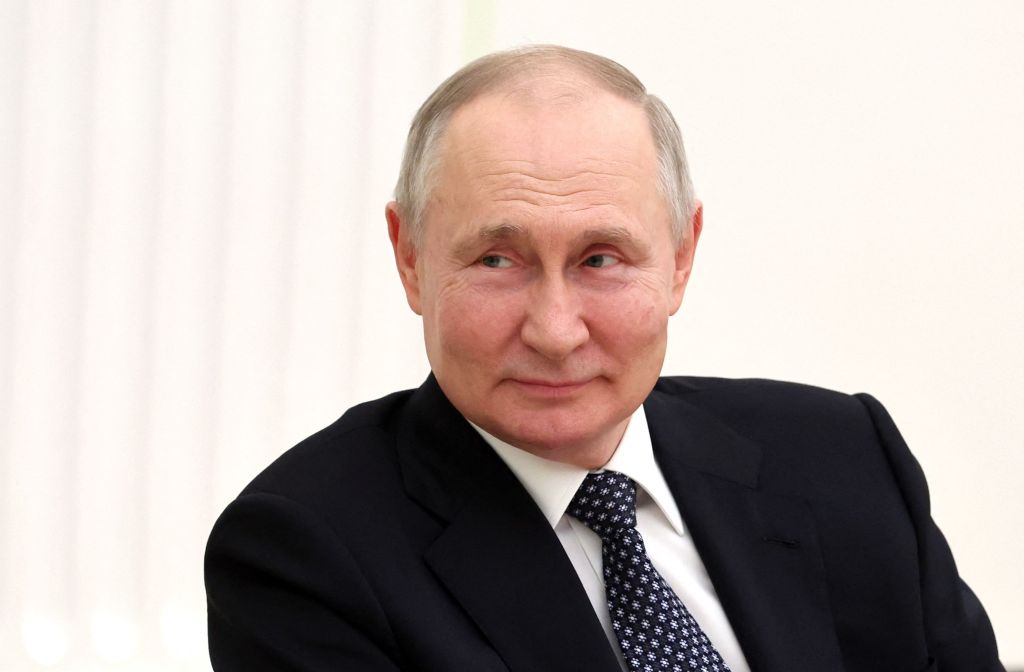Biden weakness on Russia’s hostage-taking puts Americans abroad at risk
Russian President Vladimir Putin dealt a significant blow to the safety of Americans living and traveling abroad last week with the abduction of Wall Street Journal reporter Evan Gershkovich.
With China watching closely, Putin’s brazen act should compel President Joe Biden to overhaul how the government responds to states that take Americans hostage — putting an end to ransom negotiations and authorizing active measures against the governments and individuals involved.
Finding opportunities to leverage detained Americans to get Russians out of US prisons isn’t new for Putin.
Just last year, Moscow exchanged former US Marine Trevor Reed, who’d been held for two years for allegedly attacking police officers while drunk, for a Russian pilot imprisoned in America for drug smuggling.
But a decision to seize a US journalist working for one of America’s most prestigious newspapers represents a significant escalation in the hostage-taking arena — Russia’s first arrest of an American journalist since the Soviet era.
When Russia arrested women’s basketball star Brittney Griner last year for what should have been a minor transgression — possessing a small amount of cannabis oil — Putin was running something of an experiment.
Could he leverage celebrity status and a grassroots base inside the United States to pressure the White House to release a Russian arms trafficker, Viktor Bout, found guilty in 2012 of conspiring to kill Americans?
Moscow had previously failed to win Bout’s release after detaining another former US Marine, Paul Whelan, and charging him with espionage.
Maybe Griner’s social status could be leveraged to get it done?
Putin’s gambit paid off. Biden cut a deal for Griner’s release that left Whelan rotting in a Russian prison while handing over the man known as “The Merchant of Death.”
The Griner case isn’t an outlier.
For months now, Russia has been closely tracking the Biden administration’s efforts to win the release of US hostages in Iran.
Since those Americans don’t have built-in name recognition or media ties like Griner and Gershkovich, the mullahs are resorting to more creative tactics to build White House pressure.
Most recently, Iran allowed CNN to conduct a phone interview with one hostage, Siamak Namazi, who pleaded with Biden to do whatever it takes to bring him home.
The interview’s timing was no coincidence: Tehran reportedly is nearing a deal with Washington to gain access to $7 billion in sanctioned assets in exchange for Namazi’s release.
Facing possible increased US sanctions, perhaps Putin sees his newest American hostage as a prize worth more than just another prisoner.
And with tensions heating up between Washington and Beijing, Chinese President Xi Jinping may start identifying his own targets for future hostage-taking to gain leverage ahead of an invasion of Taiwan.
The US government needs to reset how it perceives and responds to states taking Americans hostage.
Hostage-taking is not a form of enhanced diplomacy; it is gray-zone warfare — and US response options should be developed accordingly.
The American bureaucracy will reflexively advise Biden to avoid unnecessary escalation with Putin, wait for Russia’s faux legal process to play out and then secure Gershkovich’s freedom in a prisoner swap — maybe for a Russian spy held in America or another country.
That, however, would only invite more high-profile American-hostage-taking.
Gershkovich’s capture demands an immediate and aggressive retaliation with room to escalate within a gray-zone battlespace.
Biden should start by canceling open offers of paying ransoms — including sanctions relief — to any state wrongfully holding an American citizen.
The message to Iran should be simple: There will be no $7 billion released for Namazi, and every week you hold him and other Americans hostage Washington will impose a new cost on the Islamic Republic.
He should send a similar message to Putin: The United States views Gershkovich’s unlawful detention as a hostile act, and Washington reserves the right to impose costs on Russia and any individual involved.
That should be followed by concrete actions targeting the Russian economy and every Russian in Gershkovich’s chain of custody — from the security forces that seized him to the guards who stand watch over him to the court officials who will preside over his sham hearings.
The intelligence community should be tasked with developing an exhaustive list of such targets: mapping out their families, social networks, bank accounts, foreign travel and more.
Sanctions, cyberattacks, information operations and other clandestine initiatives should be on the table.
Sowing discord within the Russian government over the decision to take an American hostage should be a primary objective — an attempt to show other leaders, including Xi, the cost of seizing an American outweighs any potential benefit.
American defense officials understand the importance of deterrence in a traditional military domain and the consequences when that deterrence is eroded.
When a foreign power takes a Wall Street Journal reporter hostage, the United States is facing a catastrophic deterrence failure in the gray zone.
Until Biden recognizes that, Americans living and traveling abroad are in serious peril.
Richard Goldberg, a former National Security Council official and US Senate aide, is a senior adviser at the Foundation for Defense of Democracies.





